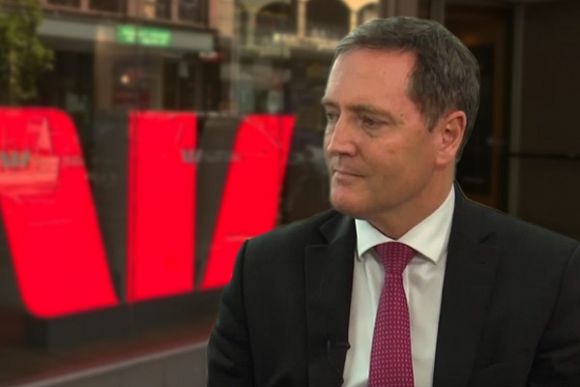The Australian superannuation industry still has investments in the fossil fuel industry with support from the Federal Government, write Brian Feeney and Samuel Alexander.
THE LATEST IPCC report rings the alarm bells on global warming even louder than before, echoing calls from authorities like the International Energy Agency (IEA) and the G7 for large and swift reductions in carbon emissions. At the same time, despite widespread community concerns about global warming, some of the superannuation contributions of Australians continue to finance fossil fuel industries.
The recent IEA report, Net Zero by 2050, notes ‘the path to net zero is narrow’ and current pledges by governments fall well short of what is required. The report’s call for no new fossil fuel investments is backed by the statement from June’s G7 summit.
These statements are consistent with signals from major economies like the U.S., UK and the EU that they will increase their ambition for emission cuts this year for the upcoming 2021 global Climate Change Conference.
These international signals highlight the need for Australian super funds to invest in a low carbon future or else jeopardise the safe and comfortable future those funds are designed to secure.
Paris Agreement emission reduction targets and super funds
The Paris Agreement is the international framework for limiting global warming and anticipates that countries will adopt emission reduction targets that will be progressively ramped up every five years from 2015.
Against this backdrop, the Australian superannuation industry – which is one of the largest of its type in the world – still has investments in fossil fuel industries. A recent report found that many of the largest 20 funds have some aspiration to reduce fossil fuel investments but only three had committed to net zero emissions by 2050.
The report notes that:
‘Superannuation is an influential component of Australia’s economy and a significant and growing source of investment in domestic assets. Within the next 20 years, super funds could dominate domestic shareholdings, with collective ownership of up to 60 per cent of shares in the Australian Securities Exchange.’
Currently, a substantial component (totalling about $3 trillion) of the Australian economy has not committed to net zero by 2050 let alone more immediate reduction targets for the next decade.
What are the interests of super fund members?
Until the 2021 Your Future, Your Super amendments, the laws governing super funds required that investment decisions be in the ‘interests’ of members. The judicial interpretation of what constituted these interests has been taken to be ‘financial’ interests in most cases. The amendments added the word ‘financial’ before interests in an apparent attempt to prevent a broader interpretation of the ‘interests of members’.
It is now recognised that there are financial risks associated with future global warming, which are likely to negatively affect the financial interests of members. These risks include damage from climate-related events and changes in regulations.
However, in addition to these risks to financial returns, there is a more pervasive risk. If carbon emissions are not significantly reduced, future global warming could adversely affect fund members’ quality of life when they retire.
It’s fair to say that super funds are beginning to factor in the financial risks of global warming but are not adequately addressing this more pervasive risk.
The Federal Government believes ‘the mission of a super fund is not to change the Earth’s temperature’ and has recently tried to amend the superannuation laws to give the Treasurer power to overrule the investment decisions of super funds. This could potentially restrict super funds from investing in clean technologies.
At the very least, it is important that the regulatory framework for the superannuation industry does not inhibit super funds from taking a broader and more long-term view of what the interests of their members are.
Need for 2030 emission reduction targets
A few major Australian super funds such as UniSuper – the fund for the higher education sector – have committed to net zero by 2050 in line with the Paris Agreement.
However, implementation of the Paris Agreement has included national emission reduction targets for the next decade, something no major Australian super fund has yet committed to. The 2020s is the critical decade for action on carbon emissions and super funds need to act now. It would be particularly appropriate for UniSuper, with members in higher education, to act on the scientific consensus on global warming and adopt a 2030 emissions target.
Funds will have understandable reluctance to commit to a 2030 target without clear legislative backing. This is particularly the case now that the Federal Government has sought the power to overrule the funds’ investment decisions.
Until there is a major shift in financial strategy, the very large investment amounts held by funds will continue to undermine efforts to limit global warming and therefore be detrimental to the interests of fund members.
Is your super fund contributing to global warming? Find out here.
Brian Feeney has degrees in civil engineering and urban planning from the University of Queensland and worked as a town planner in Queensland for more than 35 years in local government, state government agencies and as a consultant.
Samuel Alexander is a Research Fellow at the Melbourne Sustainable Society Institute, University of Melbourne.
Related Articles
- Climate change making fires a bigger threat
- Amid IPCC report, Young Liberals auction off lump of Adani coal
- Corporate spin: Meat industry denies accelerating climate change
- Pillaged forests like the Pilliga must be protected for future generations
- Climate change spelling doom on a biblical scale
 This work is licensed under a Creative Commons Attribution-NonCommercial-NoDerivs 3.0 Australia License
This work is licensed under a Creative Commons Attribution-NonCommercial-NoDerivs 3.0 Australia License
Support independent journalism Subscribe to IA.














